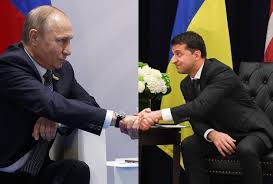
Breaking News
 Tell General Mills To Reject GMO Wheat!
Tell General Mills To Reject GMO Wheat!
 Climate Scientists declare the climate "emergency" is over
Climate Scientists declare the climate "emergency" is over
 Trump's Cabinet is Officially Complete - Meet the Team Ready to Make America Great Again
Trump's Cabinet is Officially Complete - Meet the Team Ready to Make America Great Again
 Former Polish Minister: At Least Half of US Aid Was Laundered by Ukrainians...
Former Polish Minister: At Least Half of US Aid Was Laundered by Ukrainians...
Top Tech News
 Forget Houston. This Space Balloon Will Launch You to the Edge of the Cosmos From a Floating...
Forget Houston. This Space Balloon Will Launch You to the Edge of the Cosmos From a Floating...
 SpaceX and NASA show off how Starship will help astronauts land on the moon (images)
SpaceX and NASA show off how Starship will help astronauts land on the moon (images)
 How aged cells in one organ can cause a cascade of organ failure
How aged cells in one organ can cause a cascade of organ failure
 World's most advanced hypergravity facility is now open for business
World's most advanced hypergravity facility is now open for business
 New Low-Carbon Concrete Outperforms Today's Highway Material While Cutting Costs in Minnesota
New Low-Carbon Concrete Outperforms Today's Highway Material While Cutting Costs in Minnesota
 Spinning fusion fuel for efficiency and Burn Tritium Ten Times More Efficiently
Spinning fusion fuel for efficiency and Burn Tritium Ten Times More Efficiently
 Rocket plane makes first civil supersonic flight since Concorde
Rocket plane makes first civil supersonic flight since Concorde
 Muscle-powered mechanism desalinates up to 8 liters of seawater per hour
Muscle-powered mechanism desalinates up to 8 liters of seawater per hour
 Student-built rocket breaks space altitude record as it hits hypersonic speeds
Student-built rocket breaks space altitude record as it hits hypersonic speeds
 Researchers discover revolutionary material that could shatter limits of traditional solar panels
Researchers discover revolutionary material that could shatter limits of traditional solar panels
Russia Says It's Ready For Any "Realistic" Ukraine Peace Plan As ICBMs Fly

After Russian intercontinental ballistic missiles (ICBM) went airborne Thursday for the first time of the war, reportedly targeting the central Ukrainian city of Dnipro, the Kremlin is emphasizing that it is still open to peace - amid this week's fresh wave of hugely escalatory policies issued from the US and UK (namely, greenlighting long-range attacks on Russian territory with West-supplied missiles).
A senior Ukrainian military official earlier told the Financial Times that Russia launched an ICBM called "RS-26 Rubezh" that has a range of 3,700 miles and can strike any European capital. In the wake of this, Russian Foreign Ministry spokeswoman Maria Zakharova said in a press briefing that Russia is still ready to consider any "realistic" peace initiative on the conflict in Ukraine.



